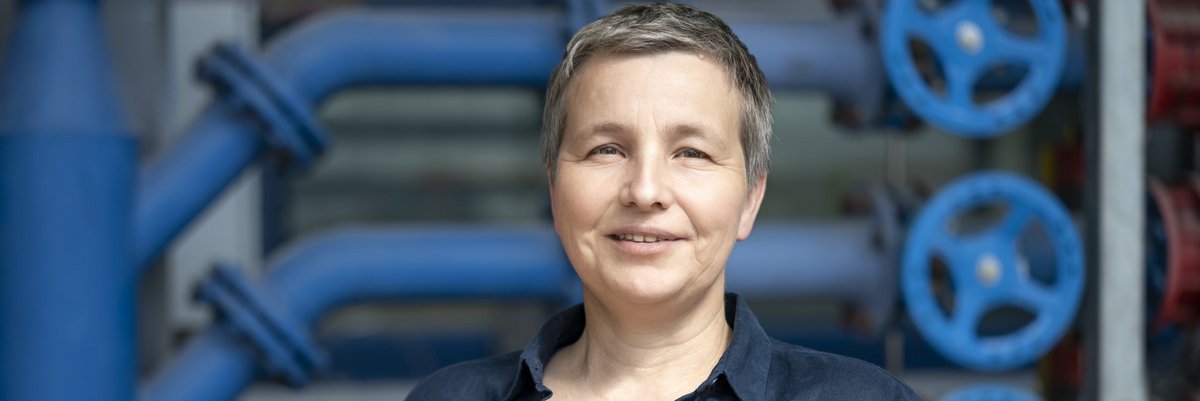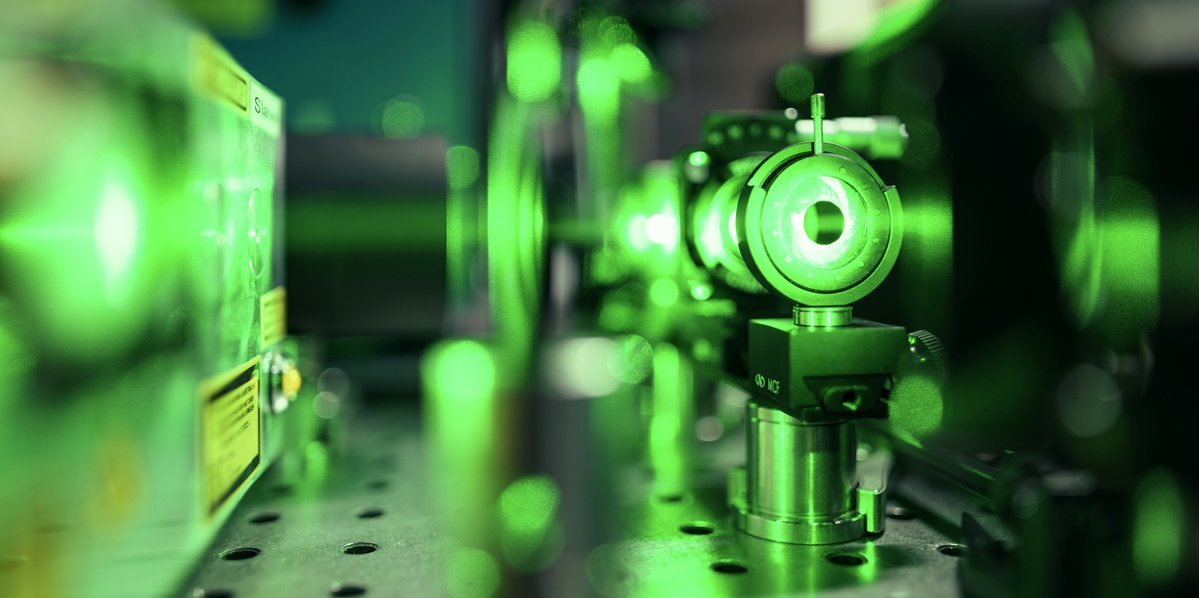The “Town Hall” meeting in the Canteen Schöfferstraße on Monday (6.11.) met with considerable interest: Almost 100 members of the university took part in the new discussion format in person, and around 70 joined them online to exchange ideas with the University Executive Board on the “European University of Technology”. To start the meeting, Professor Arnd Steinmetz, h_da President, gave a short overview of how EUT+ has developed so far and of the goals achieved in the first funding phase.
“What we are planning with our partners has never been done before,” Steinmetz was keen to stress: “A truly European institution with a transnational set-up.” The entire endeavour is a huge political exercise, Steinmetz continued: “And it’s here to stay.” He added that policymakers also see the European university alliances as a “quintessential space for shaping Europe’s future.” As a key topic for the second phase of EUT+, which started on 1 November, Steinmetz highlighted the work currently underway to create new, unbureaucratic mobility formats for students and staff. “Mobility Maps” that compare the teaching portfolios of the nine partners have already been produced for this purpose, he reported.
Steinmetz explained that the decline in student numbers is also a source of motivation for the project. Some of the partner universities, for example in Romania and Bulgaria, were virtually swamped with STEM students. In his view, collaboration within EUT+ would thus also open up opportunities to attract new students. “What we are doing here will change society,” concluded Steinmetz. Professor Andreas Weinmann (Faculty of Mathematics and Natural Sciences) testified to this, taking the floor to report on his first successful research projects with EUT+ partners in the field of data science. “I see EUT+ as a great opportunity for all of us,” he said, summing up. Sabine Kasten, a lecturer for special tasks at the Language Centre, also took the floor to report on the EUT+ project DaCaDu, a learning project on interculturality and multilingualism for students from all EUT+ universities and other partners. On the downside, she criticised the large amount of time involved in such projects.
President Arnd Steinmetz picked up on her comment to lead into the plenary discussion: “It’s not all sunshine and roses,” he admitted, “which makes it all the more important that as many people as possible come on board and contribute.” The questions from the participants on site and online mostly centred on four points: freedom of teaching and research, the future legal framework for a European University, the question of sustainability vis-à-vis travelling in conjunction with EUT+, and finally the topic of multilingualism and English language proficiency.
Concerning freedom of teaching and research, Arnd Steinmetz highlighted that this idea is already firmly anchored in the fundamental principles of EUT+ – not least at h_da’s instigation. On the other hand, the search for a suitable legal form is proving to be very complicated. One possible option, which is currently being evaluated in more detail, is the model of a European Grouping of Territorial Cooperation (EGTC). The outcome of this process is still open, but one thing is very clear: “Until further notice, h_da staff will remain employees of the State of Hesse. There are no plans to terminate collective agreements.” The second phase will also provide for democratic structures within EUT+: For the EUT+ committees at superordinate level, “elections will be held at all locations to nominate representatives,” says Arnd Steinmetz.
“What is h_da doing to make the extensive travelling in conjunction with EUT+ climate-neutral?” was one of the questions from the audience. In reply, President Arnd Steinmetz explained that most meetings take place online, but they are no substitute for meeting in person on a regular basis. “For me as a computer scientist, it was important to learn this.” As a university alliance, EUT+ wants to use its political leverage to prioritise mobility topics at a European level and, for example, increase the pressure for better train connections and a mobility transition overall.
Multilingualism in teaching and administration was also mentioned several times. Some participants were concerned that EUT+ might have English language requirements that they cannot meet. “It is not the case that we will soon be doing everything in English,” Arnd Steinmetz was keen to clarify. “We will continue to teach in German. And we are able to combine this with English courses in a clever way.” He added that the university is also working to upgrade language skills by offering online courses in all EUT+ languages. However, this does not have to happen overnight either. Incidentally, he said, the following applies: “At the meetings, the others also speak their school English – and everyone gets by.”
Were you unable to take part on Monday? You can listen to a recording of the event here. And by the way, you can send us an email with your suggestions and comments on EUt+ at any time via a contact form on the EUT+ website: h-da.de/index.php?id=23270

